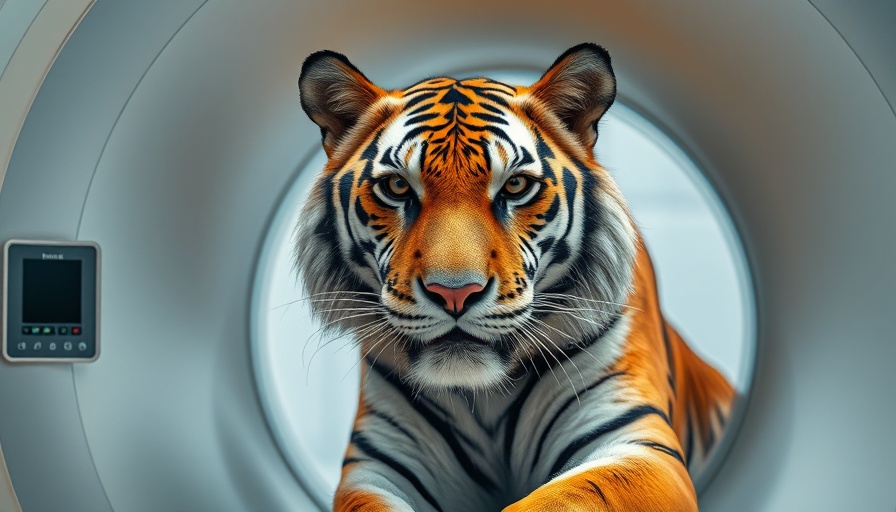
Exploring the Minds of Zoo Animals: Potential for Human Understanding
The fascinating parallels between human aging and the cognitive health of aged zoo animals open a new promising venue for neuroscience research. Long-lived zoo animals like lions, tigers, and elephants exhibit brain and behavioral changes that may reflect conditions similar to those in aging humans. Their lifestyles allow for a unique study into how environmental factors influence not only their well-being but also potentially offer insights for improving mental health treatments for humans.
A Valuable Alternative to Traditional Models
Neuroscience has primarily relied on mouse models to research human health challenges. However, these models often fall short, as they don't effectively replicate the complexities of human brain disorders. Aged zoo animals, which may face issues such as obesity, anxiety, and depression, provide a more relatable model for scientists to understand how environmental/contextual factors impact mental health. This commonality allows researchers to discern the role of environment in shaping cognitive health, shedding light on conditions that extend beyond genetic predisposition.
Conversations Around Animal Welfare and Mental Health
Like humans, many zoo animals experience mental distress caused by captivity, evident in behaviors such as pacing. These issues illuminate an urgent dialogue around animal welfare and the importance of addressing their mental health needs. Improved conditions in zoos not only enhance the lives of these captive animals but also serve as an opportunity for scientific advancement that has the potential to influence human health.
Data-Driven Insights from Big Data
Today's advancements enable the analysis of vast quantities of data for understanding health patterns. Using big data to explore the interactions between genetics and environmental factors (like enclosure size and socialization) may uncover valuable insights related to depression and anxiety in different species. This knowledge could lead to collaborative initiatives focused on continuous improvement across species.
The Road Ahead
As researchers endeavor to study these majestic creatures, they aim to uncover the fundamental biological mechanisms linking species across the animal kingdom to human health. A commitment to understanding these connections ensures that the insights gleaned will benefit both species, ultimately driving forward advancements in mental health care and animal welfare through improved research frameworks.
A world of knowledge awaits those who explore the rich, overlapping environments of zoo animals and humans. If you want more insights regarding how such study methods can pave the way for groundbreaking discoveries in psychology and neuroscience, learn more today!
 Add Row
Add Row  Add
Add 




Write A Comment